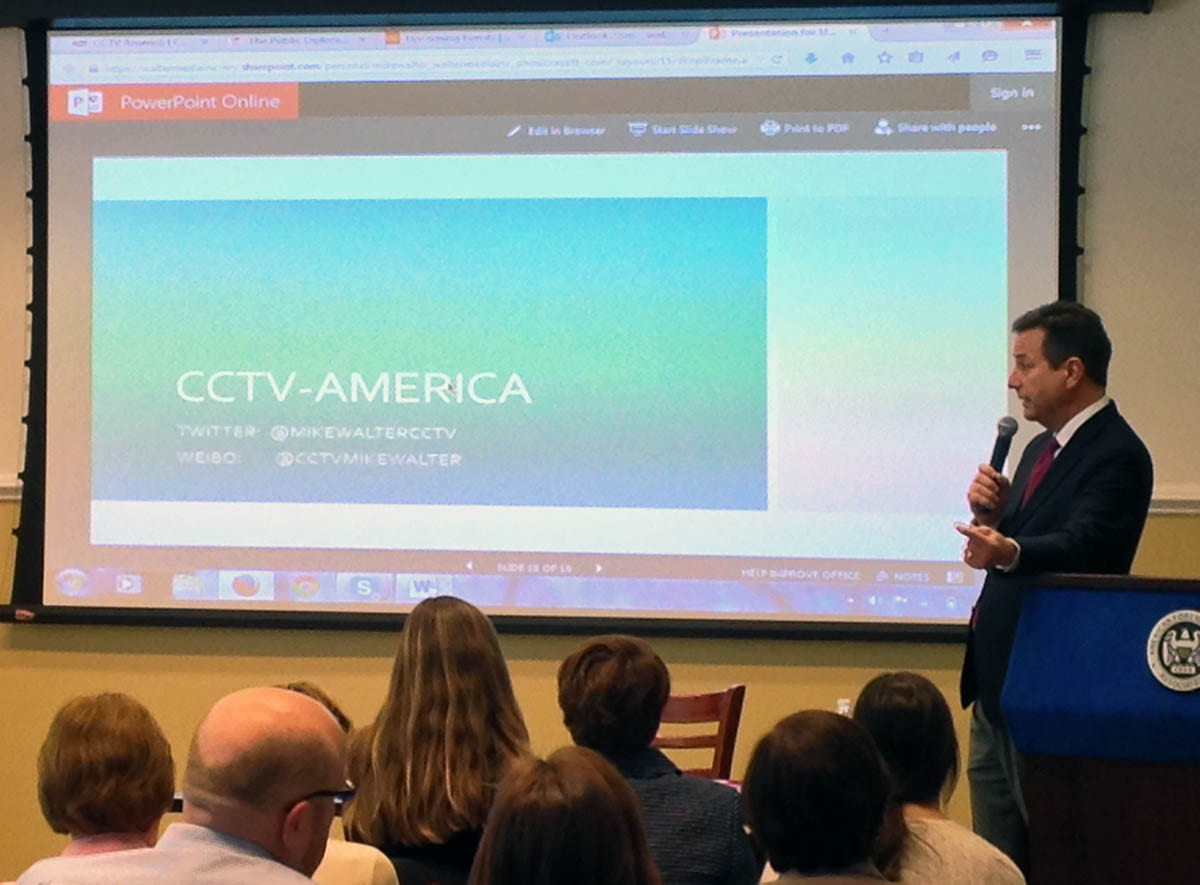WASHINGTON – CCTV America must constantly battle the perception that its funders in Beijing are slanting its news broadcasts, but that may not be the case – or at least it may be an exaggeration.
That was the word from Mike Walter, a news anchor at CCTV America, who spoke at Monday’s CCLP Communications Leadership Forum here in Washington DC.
“We have to work every day to build credibility,” he said. “We have to work harder than other networks.”

Pressed on CCTV’s coverage of the protests in Hong Kong, among the most sensitive stories for the Chinese government, Walter said his network covered the story every day, but with voiceovers of protest footage more often than the live reporting featured on some other networks.
He defended CCTV’s overall coverage, saying it “dovetails with CNN, Al Jazeera and the BBC,” adding that every network has stories that are sensitive. For example, Al Jazeera may have won awards for a documentary about a factory fire in Bangladesh, he said, but viewers won’t find much critical coverage of labor conditions in Al Jazeera’s home region. And he pointed to NBC News, claiming that network does not feature not much coverage of the Brian Williams controversy.
But for all of the money invested, is CCTV America worth it for Beijing? Walter claimed U.S. audience ratings show his CCTV news broadcast, “Full Frame” (see clips here) has doubled its audience in the past year in Los Angeles, where it is seen over the air on a public television station. However, it turns out China’s major investment in U.S. television may have its largest audience outside the United States. According to Walter, much of the audience for his made-in-America newscasts is in China, where young people want to practice their English.
“I started getting all of these invitations on LinkedIn,” he said. “I put a lot of stuff on Weibo [a popular Chinese social network], and I hear back from Chinese viewers.”
Walter said many of their viewers are also in Egypt, and he added that they are not certain why that is happening. But whatever the reason, that does keep the front office happy.
“Our bosses are far more interested in a global audience,” Walter said. “We’re looking for more of a global footprint…. We don’t think of ourselves as a Chinese network.”
Meanwhile, is it possible CCTV America is also helping U.S. public diplomacy? When Walter played one story, on an exhibit of John F. Kennedy photographs, one State Department veteran said, “We could have produced that for our broadcasts.”
This CCLP Washington Communication Leadership program was part of a monthly series of lunch forums presented in partnership with the USC Center on Public Diplomacy and the Public Diplomacy Council.
Next month’s form, on Monday, June 1st, will feature His Excellency Ashok Kumar Mirpuri, Singapore’s Ambassador to the United States, discussing Singapore’s 50 years of soft power.